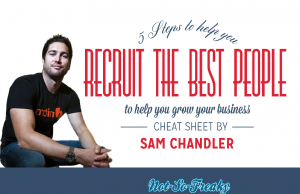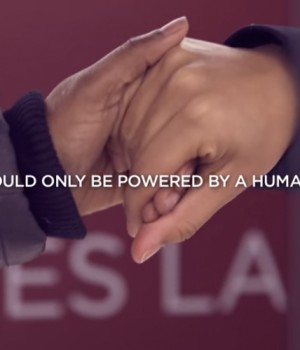Failed start-ups are like failed marriages – they’re painful events and those involved often find it difficult to discuss their experiences. That’s a shame because the lessons learned when things go wrong are just as important as the insights gifted by success.
So, in the spirit of fraternal confession, let me tell you the secrets of my entrepreneurial fiasco.
Crack open the champagne, oh wait…
I’ll set the scene by saying that I had enjoyed a welcome dose of beginners luck when, a decade ago, I created and then sold two successful online car rental companies*. And, there was no reason to believe my good fortune was on the wane after I invested in a third venture with my brother, Des.
Within two weeks of launching the new site – Oodles.com – we received an acquisition offer by Australia’s leading hotel website, Wotif.com. Des and I celebrated with not just one, but two bottles of champagne, and before receiving a signed contract we up and moved from Melbourne to Wotif.com’s hometown, Brisbane.
That’s when our luck changed.
Not only did the deal fall through but, before too long we were selling off assets so we could continue to look for investment. For the next nine months we pitched to VC’s and angel investors until we finally received another offer.
By that point we had invested more than $350,000 of our own cash and, almost two years of sweat.
Wanting is different than needing
Even though we were running desperately low on cash we still had enough confidence and self-belief to knock back the first ‘lowball’ offer and within a few weeks the same group came back with a slightly-improved proposition – 50 per cent of the business for $500,000 and a $200,000 convertible note.
Naïvely, I thought $500,000 would be enough and we wouldn’t need the loan. I was wrong. We were certainly growing, but not as nearly as fast as forecast and we were spending more than we expected, which meant we were burning cash fast.
With a team of eight people to support we had a simple choice: start cutting back or pursue another round of investment. We opted for the latter.
In essence, we found ourselves in the position of needing investment rather than wanting investment, and that’s a bad place to be for any business. Worse still, we needed that investment to come from our existing shareholders, placing us in a particularly weak negotiating position.
That’s why Des and I refer to our second round of investment as the ‘KY Jelly round’. We raised a further $500,000 in equity and another $200,000 loan, but we did so by diluting our equity to just 22 per cent.
Difficult times call for difficult decisions
Some months later we were still growing, though still burning cash. Eager to avoid another painful round of investment I decided it was time to get cash-flow positive by cutting back on expenses. That meant people had to go, and sadly, my brother and co-founder was among the collateral damage.
Our mum was not happy.
The good news is that we had some unique product in the market and were building a small, but loyal following.
Importantly, this lean approach and MVP we should have applied from the outset rather than half way through – i.e. before we’d burned so much cash.
Even though over the length of the project we had raised $500,000 in government grants, I still felt we didn’t have enough money to really scale the model, which was starting to work globally.
Being a glutton for punishment, I decided the only way forward was – you guessed it – another round of funding.
Do I stay or do I go now…
Not surprisingly, this time it was even more difficult – not only had we had cut back on marketing expenditure but we were no longer growing. Potential investors were not encouraged by the fact that the company’s two founders now owned less than a quarter of the business.
That necessitated a change of strategy, instead of looking for investor I began looking for a buyer.
I talked to companies in the UK, Asia and Australia before finally getting another offer from, somewhat ironically, Wotif.com. It was not a great deal by any measure, but it would certainly have fuelled rapid growth.
This time I kept the champagne on ice.
It was a good decision because our “investors” – or owners, as they quite reasonably saw themselves, given they held 78 per cent equity – knocked back Wotif.com and made no counter offer.
I didn’t want to work on a project that didn’t have investment, especially when I had so little equity, so I made a drastic decision.
I left, and for the first time in 13 years, I got a job working for someone else.
Six months later we were informed that our fellow investors had converted their convertible notes and secured some extra investment.
Des and I had started out as the founders of Oodles.com, with 50 per cent each. It seems we now held just 4 per cent.
Ouch.
On learning that there was basically no chance to ever recover any money from the project, I had little choice but to file for personal bankruptcy given the debts I had accumulated trying to stay afloat.
It was a suitably bitter end to what has become a cautionary tale.
But you know what?
We got everything we deserved.
All the hubristic decisions and compromises that we made led to an inevitable outcome.
In the end we learned some hard, visceral lessons.
Here, in summary, are just a few:
Don’t get over confident (and definitely don’t pop the champagne until the money is in the bank)
Bootstrap as long as you can
Don’t be seduced by the prospect of investment, and seek it only when you want it, not when you need it
Try and keep the team together
Be lean and run with a MVP from the outset, not half way in
Most of all don’t be afraid of failure or, embarrassed by a less-than-successful venture.
Even Thomas Edison, one of the greatest businessmen of his time, once famously declared: “I failed my way to success”.
Don’t get me wrong – it’s still not easy to revisit what was a painful chapter in my life, but I am pleased to say that Des and I are stronger and smarter as a result.
Plus, we are applying all our knowledge and experience to our latest start-up venture, Tripcover.me. And we are getting some good results.
Steve Sherlock founded VroomVroomVroom and Carhire.com.au over a decade ago. He was also the co-founder of Oodles.com with his brother Des. After a 2.5 year stint at Virgin Australia, Steve got back into the startup game, co-founding Tripcover.me, again with his brother. Steve is currently based in Santiago Chile, as part of the government funded accelerator program Startupchile.org.







![Learn how to use Instagram as a business tool [FREE INFOGRAPHIC]](https://anthillonline.com/wp-content/uploads/2012/12/nickelbackinstagram-100x75.jpg)
![Inbound Marketing Reloaded with James Tuckerman [FREE REPORT]](https://anthillonline.com/wp-content/uploads/2015/07/cover-3d-347h-x-253w--100x75.png)
![How To Grow Your Business and Profits with Jason Cunningham [CHEAT SHEET]](https://anthillonline.com/wp-content/uploads/2015/07/Cunningham-100x75.png)
![The Top 5 Most Insanely Dumb Mistakes made by Rookie and Seasoned LinkedIn Users, with David Hobson [FREE REPORT]](https://anthillonline.com/wp-content/uploads/2015/07/Screen-Shot-2015-11-26-at-14.29.18-100x75.png)
![How to give good headlines, and create emails that get opened [CHEAT SHEET]](https://anthillonline.com/wp-content/uploads/2013/11/7-steps-cheatsheet-3d-cover-nuova--100x75.png)


![Why you should launch your idea before it’s ready [VIDEO]](https://anthillonline.com/wp-content/uploads/2012/08/Launch.jpg)
![How did Sean Clark build a $300 million turnover company from a $500 AdWords investment? [CHEAT SHEET]](https://anthillonline.com/wp-content/uploads/2016/03/SEAN-CLARK-cheatsheet-NSFU-02.pdf-Box-2016-03-16-14-43-21-300x194.png)
![How Master the Art of Sales Even if it Makes You Feel All Weird and Icky Inside with Phil Anderson [CHEAT SHEET]](https://anthillonline.com/wp-content/uploads/2015/08/PHIL-ANDERSON-COVER-100x75.png)
![Networking is for suckers… master Inbound Marketing [FREE REPORT]](https://anthillonline.com/wp-content/uploads/2015/03/inboundreloaded-100x75.png)
![How to pitch sales and marketing ideas to your boss with James Tuckerman [FREE REPORT]](https://anthillonline.com/wp-content/uploads/2015/07/Render-3-100x75.png)
![Instagram for Business… in 12 steps [FREE INFOGRAPHIC]](https://anthillonline.com/wp-content/uploads/2015/08/Capture7-100x75.jpg)
![New Zealand’s Xero eyes US IPO, further disruption as subscribers increase [INFOGRAPHIC]](https://anthillonline.com/wp-content/uploads/2014/07/sruuuuujana-212x194.png)
![Ever wonder if your ‘content marketing’ is really just crap? You gotta see this! [INFOGRAPHIC]](https://anthillonline.com/wp-content/uploads/2014/08/content-100x75.jpg)
![7 Business Lessons From Game of Thrones [INFOGRAPHIC]](https://anthillonline.com/wp-content/uploads/2014/10/infographic-games-of-thrones-041-100x75.jpg)
![How to build your own Media Empire… In seven steps with Nathan Chan [INFOGRAPHIC]](https://anthillonline.com/wp-content/uploads/2014/10/Nathan-Chan-Infographic-e1413419529176-100x75.jpg)
![5 Business Lessons From Tinder [INFOGRAPHIC]](https://anthillonline.com/wp-content/uploads/2014/10/Tinder-Elegant-Infographic-100x75.jpg)



